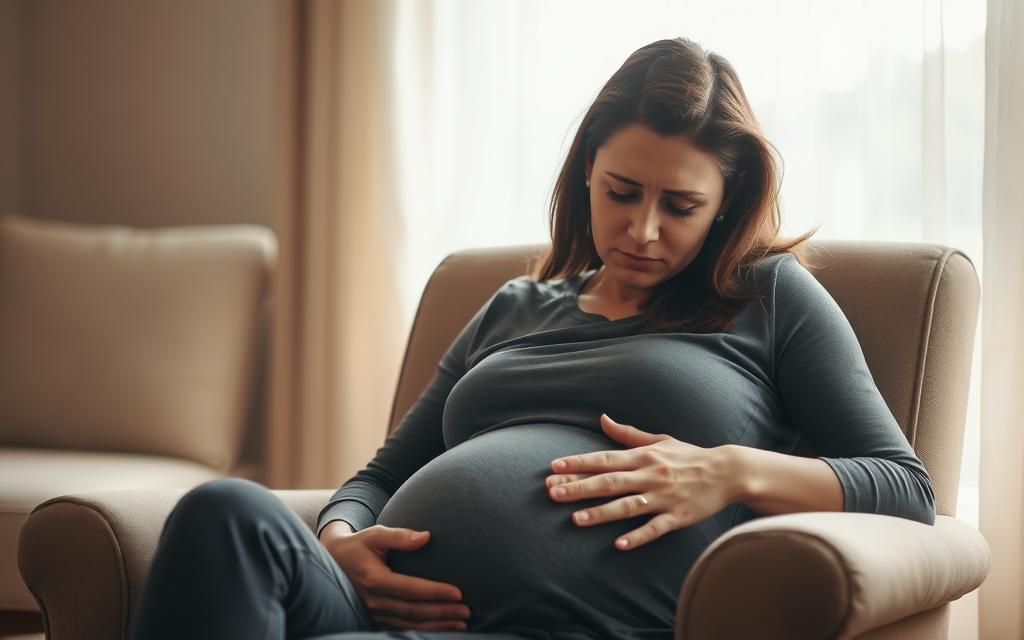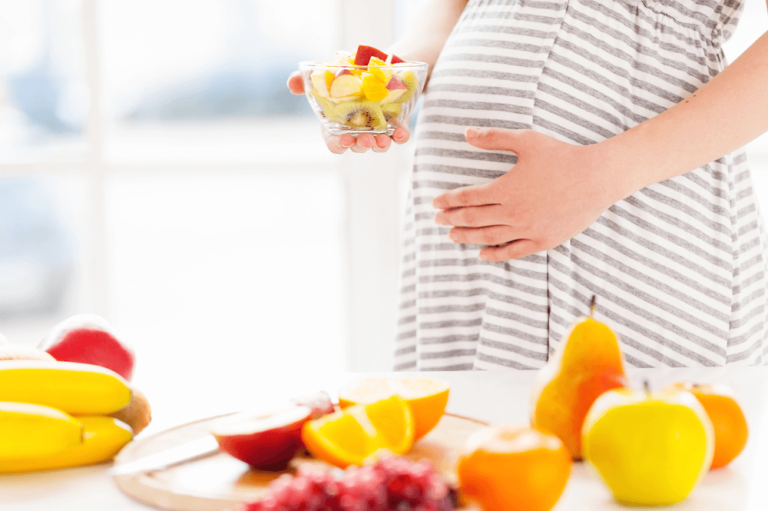Coping with Tiredness During Pregnancy: Effective Strategies

Feeling tired during pregnancy is common. Many women experience it. It’s important to know why and how to fight it. The Mayo Clinic says rest, a healthy diet, and staying hydrated can help.
To manage tiredness, understand what causes it. Hormonal and physical changes, plus emotional stress, play a role. By tackling these, you can feel better and stay healthy.
Key Takeaways
- Recognize the common symptoms of pregnancy fatigue, such as feeling tired during pregnancy
- Understand the causes and solutions to pregnancy fatigue, including hormonal changes and physical strain
- Prioritize getting enough rest, eating a healthy diet, and staying hydrated to manage pregnancy fatigue
- Identify emotional stress as a contributing factor to pregnancy fatigue and find ways to manage it
- Explore effective strategies to cope with pregnancy fatigue, such as exercise and relaxation techniques
- Consult with your healthcare provider to discuss personalized approaches to managing pregnancy fatigue
- Stay informed about the latest research and recommendations on managing pregnancy fatigue
Understanding Pregnancy Fatigue and Its Impact
As you go through pregnancy, it’s key to know why you feel tired. Learning to boost your energy can make you feel better. Dealing with pregnancy fatigue means looking at physical, emotional, and hormonal changes.
Pregnancy fatigue comes from many sources. Hormonal shifts, more blood, and carrying a growing baby all play a part. The American College of Obstetricians and Gynecologists says these changes make you feel very tired, mostly in the first and third trimesters.
To fight fatigue, start with healthy habits. Eat well, drink lots of water, and move your body. Short walks and relaxation methods can help too. Knowing why you’re tired and how to fight it can make your pregnancy better.
Here are some tips to fight pregnancy fatigue:
- Eat small meals often to keep your energy up
- Drink lots of water to stay hydrated
- Do gentle exercises like walking or swimming
- Try relaxation methods like deep breathing or meditation
Common Symptoms of Pregnancy-Related Exhaustion
As you go through pregnancy, it’s key to know the signs of exhaustion. The National Institute of Child Health and Human Development says fatigue, mood swings, and trouble focusing are common. These can affect your daily life and how you connect with others. It’s important to manage tiredness to stay healthy and happy.
Some women start feeling fatigue just a week after getting pregnant. Others might not notice it until the first trimester. Almost all women feel very tired in the first trimester. As your body gets used to pregnancy, doing everyday tasks can feel really hard. To feel better, try taking breaks and relaxing often.
To understand pregnancy-related exhaustion better, consider this:
- Fatigue can start early, even a week after getting pregnant. It might get better by the second trimester.
- Mood swings and trouble focusing can be helped by eating well, drinking water, and exercising regularly.
- Getting 7-8 hours of sleep each night is key to fighting tiredness during pregnancy.
By knowing these symptoms and using remedies for pregnancy tiredness, you can handle exhaustion better. Remember, taking care of yourself is important. If you’re feeling extremely tired or have other concerns, see a doctor.
Dealing with Pregnancy Fatigue: Causes and Solutions
As an expectant mother, you’re probably looking for ways to fight fatigue relief for expectant mothers. Pregnancy exhaustion can feel like a big challenge. But knowing what causes it is the first step to finding ways to feel better. The Mayo Clinic says that fighting pregnancy fatigue needs self-care, lifestyle changes, and sometimes medical help.
Hormonal changes, physical strain, and emotional factors all play a part in pregnancy exhaustion. For example, the rise in progesterone can make you feel sleepier. Physical discomfort and emotional stress can make pregnancy exhaustion treatment even harder.
- Take regular naps to improve alertness and mood
- Engage in moderate exercise, such as walking or prenatal yoga, to enhance energy levels and sleep quality
- Stay hydrated by drinking at least 8-10 glasses of water daily
- Eat a balanced diet rich in iron and other essential nutrients to reduce fatigue
By adding these tips to your daily life, you can find ways to reduce fatigue relief for expectant mothers. This can help you feel better overall during pregnancy. Always talk to your healthcare provider if you’re feeling very tired or if it doesn’t go away. They can check for any health problems that might be causing it.
Essential Nutrients for Fighting Pregnancy Fatigue
As you navigate the challenges of pregnancy, it’s essential to focus on combatting tiredness in pregnancy through a balanced diet. The Academy of Nutrition and Dietetics says a healthy diet rich in iron, protein, and other essential nutrients can help alleviate pregnancy fatigue. Pregnant women need about 50% more nutrients than before, making nutrient-dense foods key.
A well-planned diet can help reduce symptoms of pregnancy fatigue and improve overall health. Key nutrients to focus on include:
- Iron: 27 milligrams daily to support healthy red blood cells
- Calcium: 1,000 milligrams daily to support fetal bone and teeth development
- Folic acid: 600 mcg daily to prevent birth defects
- Protein: essential for sustained energy and overall health
Incorporating these nutrients into your diet can help you feel more energized and prepared for the challenges of pregnancy. By making informed food choices, you can effectively manage combatting tiredness in pregnancy and ensure a healthy pregnancy journey.
Remember, a balanced diet is just one aspect of managing pregnancy fatigue. Be sure to consult with your healthcare provider for personalized guidance and support.
Creating an Energy-Boosting Pregnancy Diet
To manage fatigue during pregnancy, focus on how to increase energy while pregnant with a balanced diet. Eating small, frequent meals can boost energy and reduce nausea. A diet full of whole foods, as advised by the American College of Obstetricians and Gynecologists, can also help.
When coping with fatigue during pregnancy, drinking at least 8 to 10 glasses of water daily is key. Adding iron-rich foods, proteins, and vitamins can fight fatigue. A prenatal vitamin with folic acid also lowers the risk of neural tube defects.
Here are some tips for an energy-boosting pregnancy diet:
- Eat lean proteins like chicken, fish, and beans
- Add whole grains like brown rice, quinoa, and whole-wheat bread
- Enjoy a variety of fruits and vegetables
- Stay hydrated with water and limit caffeine
By following these tips and eating well, pregnant women can fight fatigue and stay healthy. Always talk to a healthcare provider for specific nutrition advice.
Exercise and Movement Strategies During Pregnancy
Managing pregnancy tiredness is key to staying healthy. Regular exercise can help fight fatigue and boost your mood. The American College of Obstetricians and Gynecologists suggests 150 minutes of moderate activity each week.
Choosing the right exercise is important as your body changes. Gentle swimming, prenatal yoga, and Pilates are great for energy and reducing tiredness. Even short walks can be as good as a long cardio session.

Safe Exercise Options
- Brisk walking
- Swimming
- Prenatal yoga
- Pilates
Drinking water before, during, and after exercise is essential. Adding more activity to your day, like longer walks, can help. Exercise and movement are key to managing pregnancy tiredness and staying energized.
Sleep Optimization Tips for Expectant Mothers
Getting enough sleep is key for expectant mothers to manage fatigue relief for expectant mothers and stay healthy. The National Sleep Foundation says sleep loss can raise the risk of early birth and depression after giving birth. To sleep better, start a bedtime routine, make your sleep space comfy, and steer clear of things that keep you awake before bed.
Here are some ways to sleep better:
- Avoid caffeine and big meals close to bedtime
- Try relaxation methods like yoga or deep breathing
- Make your sleep area dark and quiet
By using these tips, expectant moms can lessen pregnancy exhaustion treatment symptoms and boost their health. Remember, sleep is vital for a healthy pregnancy. So, make it a top priority.
Natural Remedies for Pregnancy Tiredness
Dealing with pregnancy tiredness can be tough. But, there are natural ways to boost your energy. The National Center for Complementary and Integrative Health says some herbal remedies and therapies can help.
Always talk to your doctor before trying new remedies. Safe options include ginger, peppermint, and chamomile for nausea and relaxation. Acupuncture, massage, and yoga can also reduce stress and improve your mood.
Safe Herbal Solutions
Herbal teas like red raspberry leaf and dandelion root are full of nutrients. They can help fight tiredness. Also, eating foods rich in iron can prevent anemia, a common cause of fatigue.
Alternative Therapies
Meditation and deep breathing can lower stress and help you relax. Regular exercise, like brisk walking, can also boost your mood and energy. It’s important to listen to your body and rest when needed.
Lifestyle Adjustments
Changing your lifestyle can help fight pregnancy fatigue. Keep a regular sleep schedule, drink plenty of water, and eat well. Adding these natural remedies to your daily life can reduce fatigue and improve your health.
Remember, your health is key during pregnancy. By trying natural remedies and making lifestyle changes, you can manage your energy better. This will help you have a healthier pregnancy.
Managing Work and Daily Activities While Pregnant
As you navigate pregnancy, it’s key to learn how to boost your energy. The American College of Obstetricians and Gynecologists suggests making changes to your work and daily life. This can help manage pregnancy fatigue.
To manage work and daily activities well, consider these tips:
- Prioritize self-care and take regular breaks to rest and recharge.
- Discuss workplace accommodations with your employer, such as flexible work hours or ergonomic furniture, to reduce discomfort and fatigue.
- Focus on energy conservation techniques, like taking short walks or practicing relaxation exercises, to help alleviate stress and increase energy levels.
By using these strategies and adjusting your daily routine, you can better handle fatigue during pregnancy. This will improve your health and well-being. Remember to listen to your body and take breaks when needed. This way, you can keep your energy up and enjoy a healthier pregnancy.
When to Seek Medical Help for Extreme Fatigue
As an expectant mother, knowing when your tiredness is normal and when it’s a sign of something more is key. Fatigue relief for expectant mothers is important, and getting help when needed is vital for your health. The Mayo Clinic says extreme tiredness could mean there’s a medical issue that needs a doctor’s check.
Signs you might need pregnancy exhaustion treatment include very tiredness, fever, chest pain, or trouble breathing. Also, if you’re really thirsty, pee a lot, or can’t sleep well, talk to your doctor. They can figure out why you’re tired and help you get better.
Some pregnancy conditions like gestational diabetes, anemia, or thyroid issues can make you very tired. If you’re feeling really tired, have a fever, chest pain, or trouble breathing, see a doctor. They can help.
- Extreme fatigue that interferes with daily activities
- Fever or chills
- Chest pain or difficulty breathing
- Severe headaches or dizziness
- Extreme thirst or frequent urination
It’s always safer to be careful with your health when you’re pregnant. If you’re worried about being tired or have symptoms that bother you, talk to your healthcare provider. They can offer guidance and support.
Building a Support System During Pregnancy
Managing pregnancy can be tough, but having a strong support system helps a lot. The American College of Obstetricians and Gynecologists says a support system can ease pregnancy fatigue. Having loved ones, healthcare experts, and community help can make a big difference.
A support system offers emotional support, helps with daily tasks, and gives advice. This is key for managing tiredness in pregnancy. A strong support system keeps you on track with healthy habits and self-care.
Partner Support Strategies
Your partner is a big part of your support system. Talk openly and ask for help when needed. A supportive partner makes you feel less alone during pregnancy.
Community Resources
There are many resources for pregnant women, like support groups and online forums. These offer valuable info, emotional support, and connections with others going through the same thing.
Professional Help Options
If pregnancy fatigue is hard to handle, talk to a healthcare professional. They can offer personalized advice, support, and resources for your journey.
Building a strong support system helps manage pregnancy fatigue and improves your health. You’re not alone – reach out to loved ones, community resources, and healthcare experts for help and guidance.
Conclusion: Embracing Rest and Recovery During Your Pregnancy Journey
As you go through the amazing journey of pregnancy, make rest and recovery a top priority. Sleep well, take breaks, and take care of yourself. This helps fight the tiredness and exhaustion that comes with it.
Your body is changing in incredible ways. Give yourself permission to slow down and recharge. Create a space where you can rest and regain your energy. Ask for help from loved ones, use community resources, and seek professional help when needed.
Your health and well-being are key to a successful pregnancy. By focusing on rest and recovery, you’ll not only beat pregnancy fatigue. You’ll also be ready to welcome a new life into the world. Enjoy this time and know that with the right support, you can combat tiredness in pregnancy and come out stronger.





